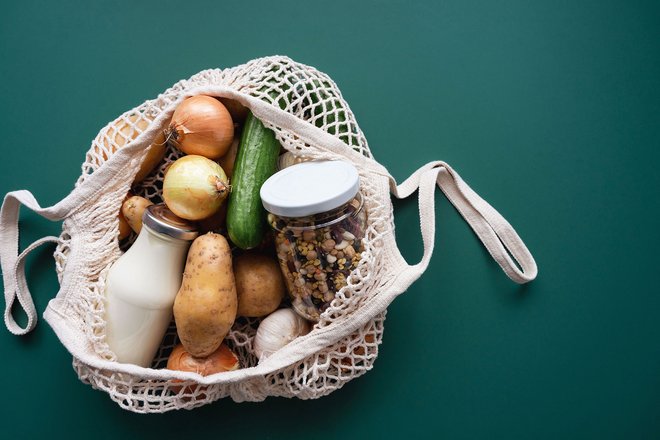When the weather turns bad, the clouds in the sky darken, and the wind blows raindrops in your face, it’s that time again: the season of colds and flu. It strikes the average adult two to four times per year. There are even people who get caught by every cold and flu outbreak – and seniors in particular are affected by this. Prevention would be possible in many cases. Here you can read about the connection there may be between zinc deficiency and vulnerability to infections and how you can easily prevent nagging colds.
Susceptible during cold and flu season? How zinc strengthens your immune system in old age
![[Translate to English:] [Translate to English:]](/fileadmin/_processed_/9/c/csm_cold_ea4af18112.jpg)
Page contents

Severe and frequent colds may be signs of a zinc deficiency
Getting struck down by a cold every winter and having a nose that simply will not stop running may point to a lurking zinc deficiency. The symptoms of a zinc deficiency are not only seen in the skin and hair or in poor wound healing. This is because a zinc deficiency also weakens the immune system.
The consequences: With a weak immune system, you are more susceptible to colds – sore throats, coughing, and sniffles are frequently seen. Other viral diseases such as herpes also have it easy if your immune system is weakened due to a zinc deficiency. The problem: During a cold, checking zinc levels is not the first thing that comes to mind. And yet, the trace element plays an important role in the immune system.
The functions of zinc in a strong immune system
The trace element zinc is an important component of the immune system and it is used in the cellular as well as in the humoral defense against infections. Zinc is especially helpful when it comes to resistance to colds. But even if the pathogen has already entered your body, zinc is crucial. It is involved in the formation and activation of immune cells and actively responsible for fighting disease pathogens. Finally, zinc drives the rhinoviruses responsible for the cold from the so-called ICAM receptor of the nasal mucosa and inhibits replication. A sufficient zinc intake is thus especially important during cold and flu season!
Study: Colds are shorter if zinc is taken at high doses
Studies have repeatedly been able to show that the zinc level has a direct effect on the course of colds. You can read a summary of previous results here. The same finding was able to be confirmed by a meta study. The researcher with the fitting name of Michelle Science, together with her colleagues, analyzed 17 placebo-controlled studies involving a total of 2121 participants. One of the results of the studies analyzed: In adults, the administration of high-dose zinc, at a dosage of at least 75 mg per day, led to an average shortening in the length of the cold by 2.75 days. In the studies, zinc was administered orally. The following finding was especially important: Zinc supplementation should be started immediately once symptoms of illness appear so that the effect observed occurs.
Zinc is involved in the formation and activation of immune cells and actively responsible for fighting disease pathogens.
Seniors are affected by zinc deficiency particular frequently
It is best not to wait until an illness occurs but rather to prevent it in good time. Especially in old age, the capacity of the immune system decreases and the risk of infections, such as colds, increases. One of the reasons is that the body, due to various factors, no longer receives sufficient amounts of all of the vitamins and trace elements it needs. The causes may include illnesses, medication side effects or a digestive system whose absorption capacity has decreased. Even reduced or limited diet can be responsible for various states of deficiency. In general, it is a combination of several of these factors which make seniors a group at risk for zinc deficiency. In order to keep the immune system resistant, seniors should accordingly focus on a balanced diet and intake of all important vitamins and minerals.
How high your daily zinc requirement is
Zinc cannot be stored in large amounts in the body and for this reason, the regular intake of this essential trace element is necessary. Adult women should consume 7 mg of zinc daily, and men, somewhat more – 10 mg. This is recommended by the German Nutrition Society (DGE). Individual factors which can inhibit the absorption of zinc and which – as described above – play a role particularly in the case of seniors, are not taken into account in this general recommendation. Accordingly, the daily need may be greater in individual cases.
The basic element is of course a balanced, nutrient-rich diet and proper intake of the most important vitamins and trace minerals – especially zinc.

These foods contain a lot of zinc
Zinc is primarily found in protein-rich foods of animal origin, such as cheese or beef. It is also present in vegan foods such as pumpkin seeds and oats – however, it must be kept in mind that zinc from plant-based foods cannot be absorbed by the body as well as zinc from animal origin. The reason: The phytic acid contained in plant-based foods – which plants need for their growth – binds minerals such as zinc, magnesium and calcium. Our digestive tract cannot break this bond and the minerals are eliminated in unused form. Peanuts contain a particularly high level of phytic acid and phytate, for example – but despite their high zinc content of 3.4 mg per 100 g, they are hardly useful as a source of this mineral.
Prevention is better than a cure: how you can avoid a cold
There are several preventive measures you can take to protect yourself from becoming infected with cold viruses during the cold, wet season. Try to avoid large crowds of people. Nonetheless, if you take the bus or train every now and then in the winter, frequent hand washing is a protective measure to avoid becoming infected from doorknobs, handles or handshakes. In addition, you should drink enough to prevent your mucous membranes from drying out in heated indoor air and preserve the natural protective layer. Warm herbal teas are especially good for this. Last but not least, the basic element is of course a balanced, nutrient-rich diet and proper intake of the most important vitamins and trace minerals – especially zinc.
Wörwag Pharma GmbH & Co. KG - The range of information provided in www.woerwagpharma.de about personal health is exclusively for your information and in no way replaces a personal consultation, examination or diagnosis by a licensed physician. The contents made available on www.woerwagpharma.de cannot and may not be used for establishing diagnoses and/or taking medication on your own. Please also pay attention to the exclusion of liability and our indications to the image rights.